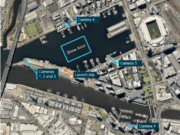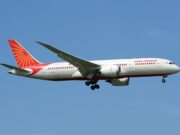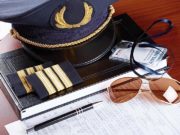Airports in the United States and Canada need increased funding to deal with rogue drones that enter their airspace, and law enforcement personnel should have the training and authority to intervene to protect the airspace against inappropriate drone activity, a new report says.
The report, released Wednesday by the Blue Ribbon Task Force on UAS Mitigation at Airports, deals with the integration of unmanned aircraft systems (UAS), as drones sometimes are known, into airspace shared with manned aircraft, as well as the detection and identification of drones in and around airports and the mitigation of related problems. The task force was commissioned earlier this year by Airports Council International–North America and the Association for Unmanned Vehicle Systems International.
“Whether the origin of drone activity near airports is careless, clueless or criminal, the escalating frequency of drone-related incidents present[s] a security, operational and economic challenge to North American airports and their surrounding communities,” said Deborah Flint, CEO of Los Angeles World Airports. “The findings of the Blue Ribbon Task Force provide North American airports with a template for developing a response to drone incidents while providing a voice and representation for airports to the federal entities that control drone regulation.”
The report said the U.S. Congress and the Canadian Cabinet should appropriate more funds for the Federal Aviation Administration and Transport Canada, respectively, to allow for the detection of rogue drones in airspace near airports.
“The final report identifies an unacceptable security gap at many airports across the U.S. and Canada, with no federal role in UAS detection and often no resources for an airport role to engage in UAS detection operations,” the report said. “The task force takes the position that airports should not be burdened with undertaking UAS detection operations but instead, as with many other operations at airports, such as airport security, UAS detection should be a shared responsibility between airports and federal governments.”
The task force also said that lawmakers should extend the authority for UAS interdiction to trained law enforcement officials.
“The deputation of counter-UAS authority to these officials should begin with a pilot program … to establish protocols, training and practice exercises.”


